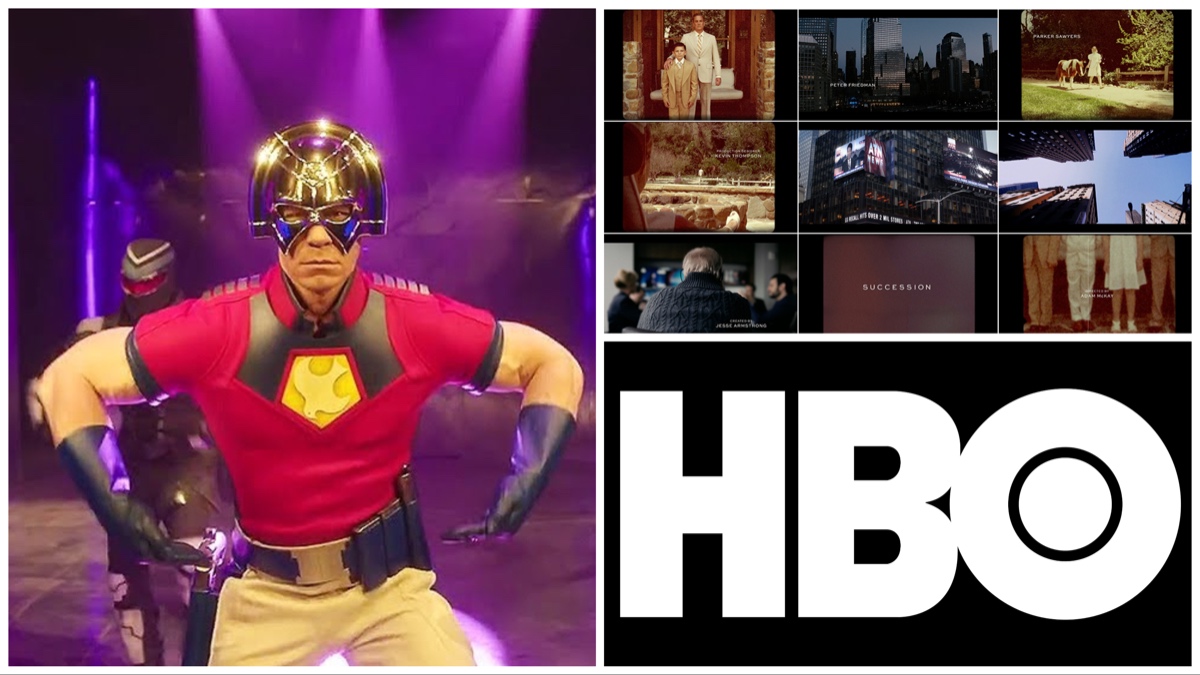Dancing robotically never looked this fun.
The age of the streamer helped contemporary shows migrate back to the full-scale table-setter. For a short time, it appeared as if opening themes were on the brink of extinction. But mass nostalgia soon begot ample recognition of just how important they are.
One prime example is the current Number One show, HBO Max’s Peacemaker. Its opener is a bona fide attraction, subverting expectations and conditioning consumer reaction. Deeply invested parties are reminded: no matter how charged up the material may become – it is still just a show.
“I wrote it into the script, it was always there,” creator James Gunn told HBO Max. The Guardians of the Galaxy helmer’s reversed, quasi-cancellation over edgy Twitter humor somehow allowed him to resuscitate The Suicide Squad, then spin-off from it with the sequel venture.
“The idea was that it would be this incredibly eccentric dance, with everyone looking incredibly serious,” he added.
That, it most definitely is. Cut to “Do Ya Wanna Taste It” by Norwegian glam metal mainstay Wig Wam, the impressively choreographed sequence is virtually unskippable. It sets the stage for each episodic adventure of Peacemaker (John Cena), a line-crossing superhero with a secret kindness buried by the brutal acts he was raised to commit, with comic relief and general lunacy. Peacemaker and his new team’s “Operation: Butterfly” mission is of utmost importance, yet the song-and-dance invitational pull entertains without undermining the attached material.
Meanwhile, at HBO Max’s cable counterpart, one series gained word of mouth steam as the network’s “next Game of Thrones” with the help of the universal appeal of its theme music.
In a home video-heavy edit constructed as an homage to David Fincher’s The Game, the Golden Globe winner for Best Drama is the rare generationally-charged series that does not need to dabble in flashbacks or time-jumping. Succession eludes the much-traveled road because everything you need to know about the characters and family dysfunction is within said grainy footage.
Waystar/Royco CEO Logan Roy promised his kin the world and more, but he never really gave a damn the second a photo-op was over with, either. This is represented by the sequence’s culmination, which itself foretells the manifestation of the same on a larger scale within the series’ continuity: Logan’s emotional abandonment of his children.
As crafted by Nicholas Britell, the composer imagined what the Roy family would choose for themselves as initial dailies poured in. The result: a classical piece, symbolic of the old guard (Logan), in constant clashing with a “hip hop” undercurrent, signifying the emergence of a young corporate gun on the rise (Kendall).
“The score has a duality that the show has,” Bitrell told Vanity Fair. “Elements of absurdity and a deep gravitas under the surface — the show is dealing with concentrations of power and wealth in the hands of fewer and fewer people, focused in the media industry.. this feeling of the late 1700s, the dark classical universe; an immediate dissonance right from the top of the keys speaks to that.. that something is off; is off-kilter. Just like this family.”
For every The Brady Bunch of yesteryear jingling away its exposition, there are brief yet immersive helicopter-shots-for-intros like today’s Billions – depicting the post-9/11 Southern District Bobby Axelrod was too quick to trade in once upon a time, and now won’t hear the end of it. These opening themes accomplish their objective, just in different ways.
It’s the lyrics and images that become part of one’s foremost instant recall of their favorite series, anyway. Therefore, you might as well make it a memorable one, as fans of the simple title card-introduced Ray Donovan wonder why they closed shop without a proper finale, then released a movie that nobody saw.







